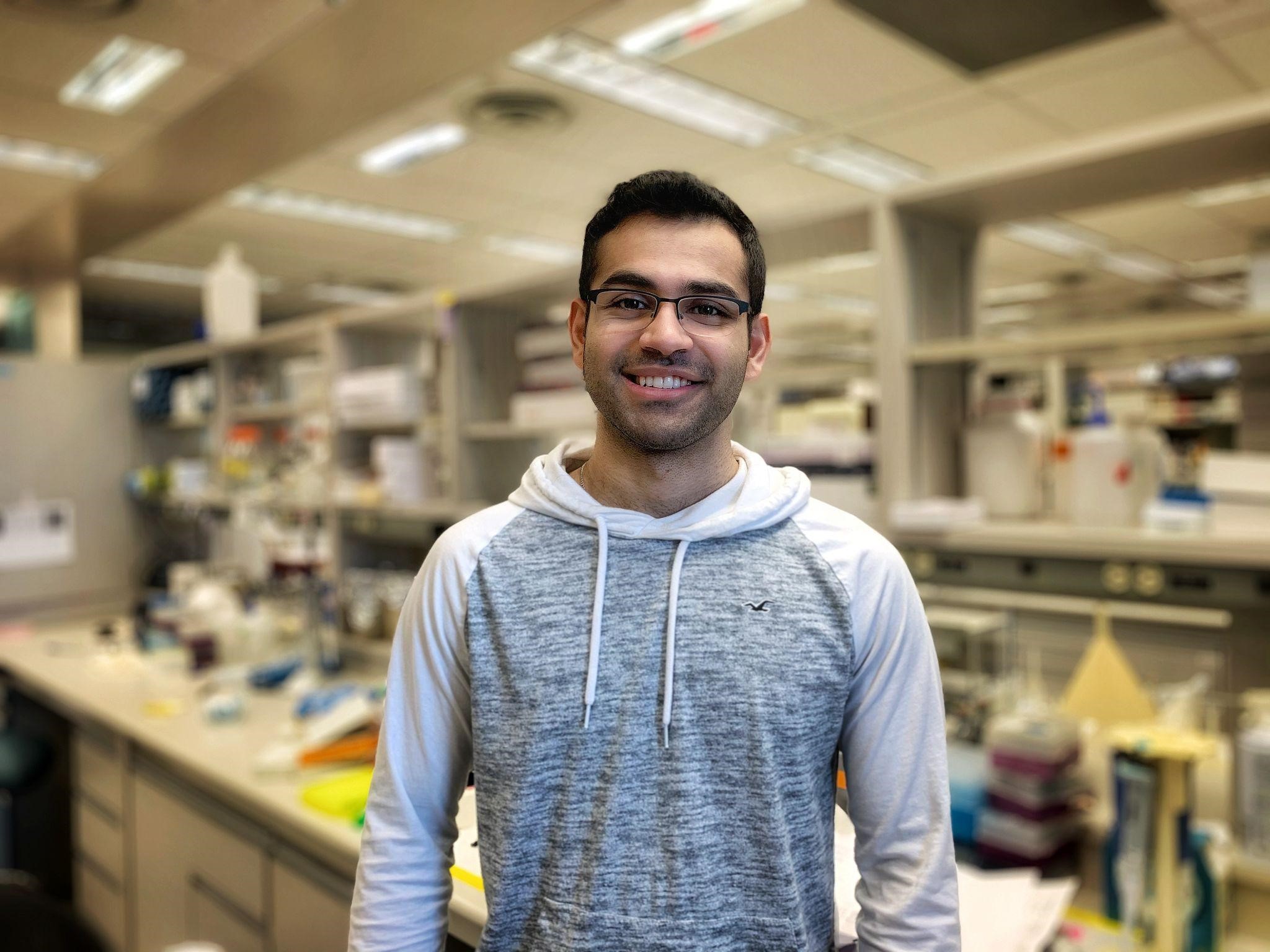Shubham Soni receives prestigious Izaak Walton Killam Memorial Scholarship and Dorothy J. Killam Memorial Graduate Prize
8 December 2022

Shubham Soni. Photo supplied.
We recently caught up with Soni to learn more about him and his research.
What inspired you to study medicine?
As far back as I can remember, I’ve always loved science and learning how things work. Since I played a lot of sports growing up, and endured many injuries, I became intrigued and fascinated by how our body works. Seeing how physiotherapists and doctors would tell me about what was wrong and how to fix it made me even more curious about how their knowledge came to be, and how I could help answer questions we don’t yet have answers to. It was finally in my undergrad that I realized how to be a part of a team that can actually help answer those questions, so that our health-care community can communicate this with our patients and improve their lives in some way. The way I see it, I can’t think of anything cooler to learn about than the human body!
If you were talking about your research to family or friends who don’t work in your field, how would you describe it?
I primarily work on finding and testing new therapies for heart failure, a chronic condition where the heart cannot function properly due to some injury to the heart. There are many complex processes that lead to heart failure, but I focus on the role of metabolism and inflammation, and the therapies I study focus on targeting these two processes to improve the heart’s function.
I also find that giving the following example inspires excitement in others:
There’s a recent drug that’s very safe and effective at treating diabetes. In making sure that it was safe to use in people with diabetes and heart problems, it was found that it was not only safe to use, but that it actually works better than the other therapies currently used to treat those heart problems. So we have this anti-diabetic drug that is somehow treating heart failure, and no one truly knows or understands why — and today, this same anti-diabetic drug is now being used to treat people with heart failure who don’t have diabetes! My thesis basically focuses on using this and a related therapy to treat heart failure and other inflammatory conditions.
What led you to this area of research? Why is it important to you, what problem do you hope it will solve?
I love this question, and I hope my response can highlight the importance of exploring unfamiliar areas and stepping outside your comfort zone. I initially came into research wanting to study metabolism and how to treat diabetes. In doing so, I learned how improper metabolism has a unique connection with the heart and cardiovascular diseases. As I studied this connection, I also came to learn about the role of inflammation in this mix. Today, I am happy to have explored these research avenues and our proposed therapy, as they are becoming prominent ideas in understanding and treating the complex mix of inflammation and metabolism in heart failure.
This work is important to me for a number of reasons. First, I hope my research will assist the effort in bringing these therapies to patients and improving their lives. Second, it allows me to think creatively and question our current practices in medicine so that we can ultimately improve our approach to caring for patients. Lastly, it’s important because you never know what you can learn when you ask a question. In trying to “solve” the problem of finding new therapies for heart failure, we are also learning that these therapies can likely be used in various other inflammation-mediated conditions as well. This also ties into the last question: I hope to help provide a new therapy for patients who experience heart failure. But I also hope to extend the scope of this therapy and test its effectiveness in other related conditions.
What does it mean to you to be awarded the Izaak Walton Killam Memorial Scholarship?
It’s an incredible honour to be recognized with the Killam Scholarship. My path through research has been full of twists and turns, and it took some time to establish myself along the way. So to see the collection of my work and efforts being recognized is tremendously encouraging and gratifying.
What does it mean to you to win the Dorothy J. Killam Memorial Graduate Prize?
As if receiving the Killam Scholarship wasn’t rewarding enough, it’s an exceptional honour to be highlighted among my fellow Killam Scholarship recipients. It is an achievement I celebrate and share with the many mentors who continue to support my growth, who allow me to pursue my interests, and who have helped me flourish as a young scientist.
When do you hope to complete your PhD?
I hope to complete it within the next one to two years. Having completed four years so far, I have now enrolled in the U of A’s MD/PhD program and am working on wrapping up the remainder of my PhD while in medical school.
Where do you see yourself in five years?
Hopefully in my desired residency training program, and only time will tell what that is. However, no matter what area it ends up being, I know that I’m going to continue studying and researching the questions that interest me, and I hope to continue that in my future career as well.